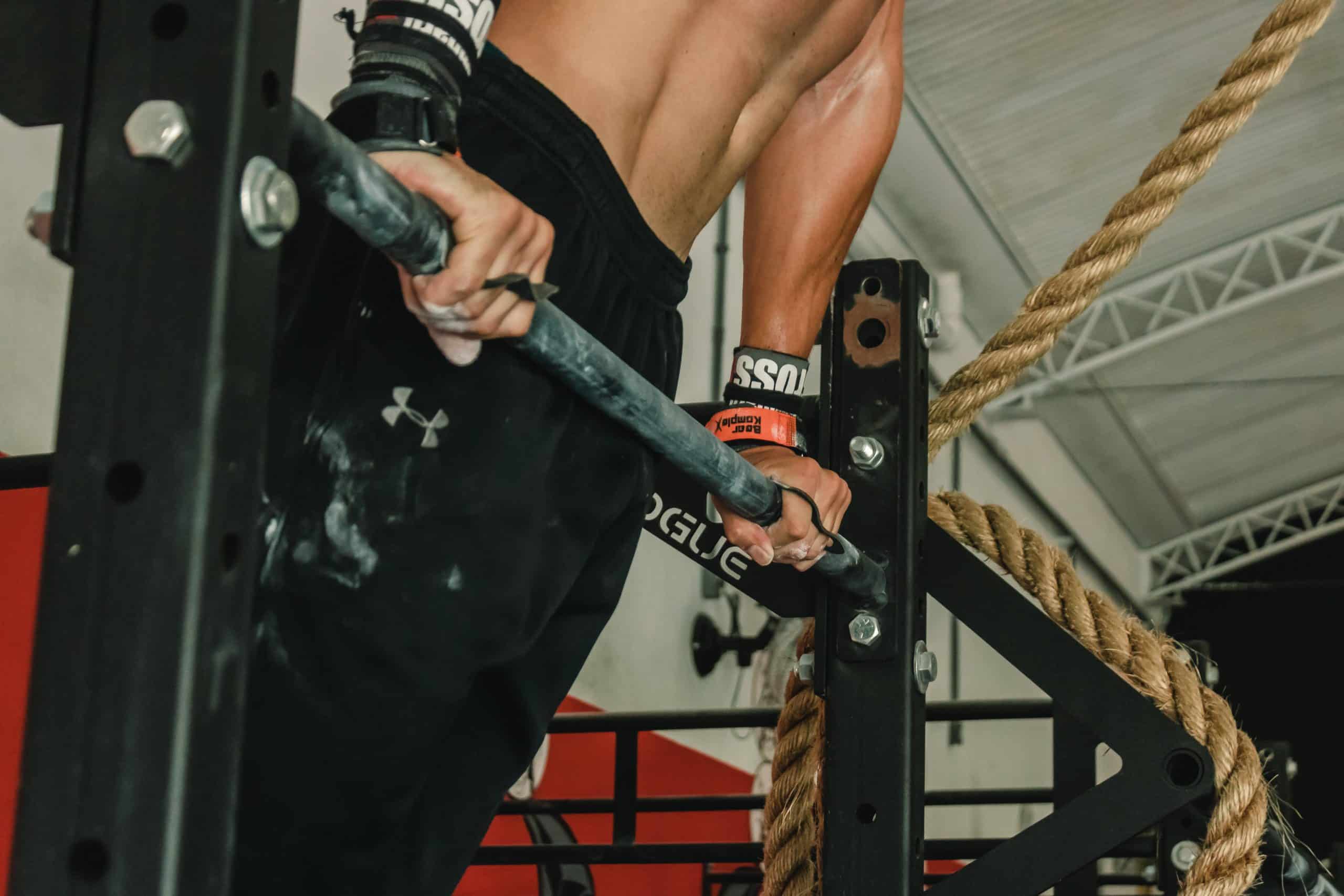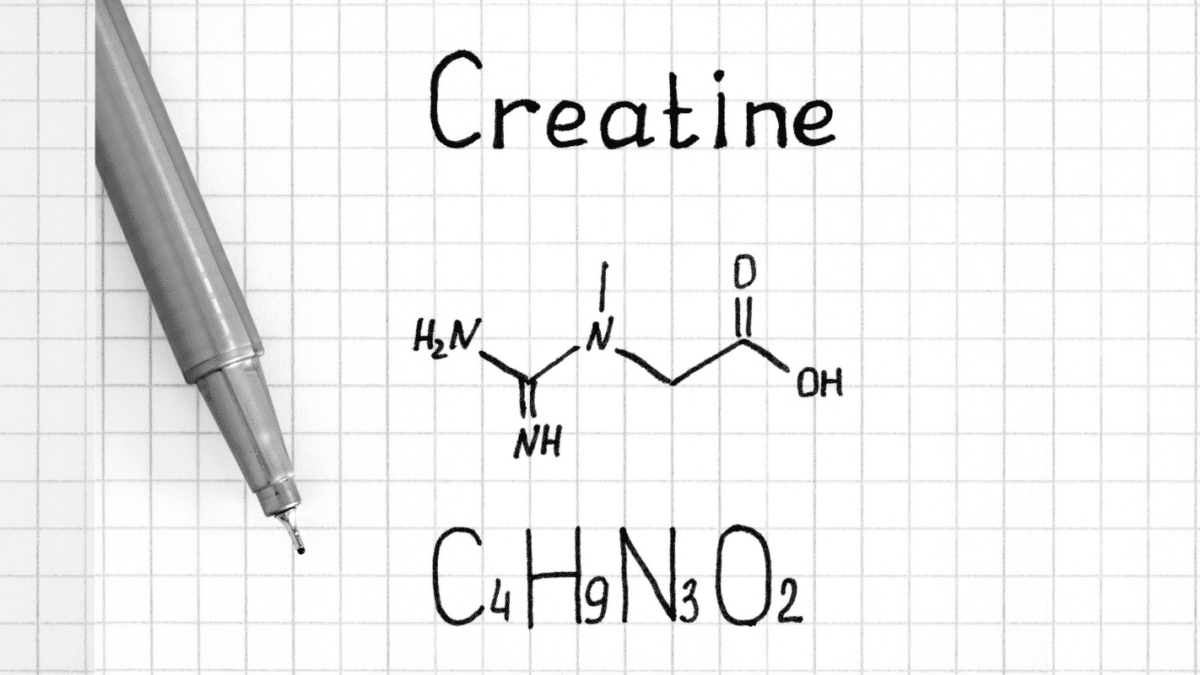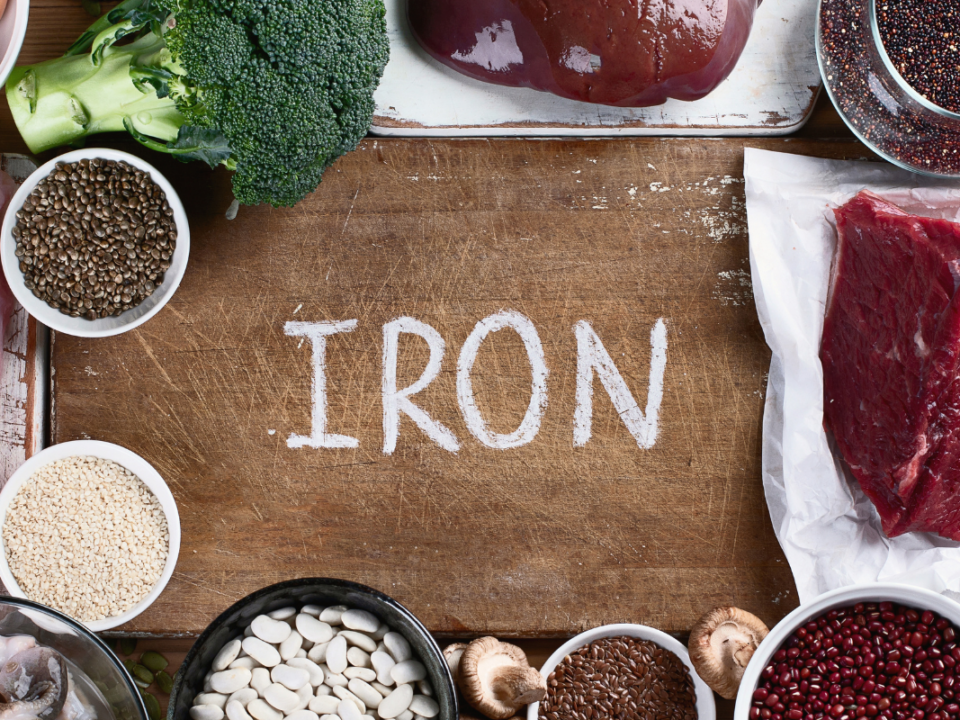Summary points
- If an athlete is training or exercising to a competitive level and achieving all aspects of their nutrition, creatine can be considered as an option to support performance goals
- Creatine is one of the most well researched sports supplements
- Creatine supplementation has been considered a controversial subject in various media forms, however, any controversial claims are most often misleading and unsubstantciated.
- Creatine supplementation is not suitable for all athletes or sports and careful planning and consideration must be given to all aspects of an athletes diet before considering creatine supplementation
Introduction
The impact of sports nutrition on athletic performance is now clearly supported from decades of research studies highlighting the importance of adequate energy, macronutrients, precise meal timing and high quality food composition. Sports supplements can in specific circumstances have a role but not before all key elements of an athletes diet has been executed with a high level of precision.
 Athletes must always get the big building blocks of the diet right before considering any ergogenic aid (anything that gives you a physical or mental performance edge). When considering what works as an ergogenic aid for improving performance, despite what you may read, there are actually very few that are effective or worth the investment of time and money. Creatine is one of the few supplements that has been scientifically shown to boost athletic performance.
Athletes must always get the big building blocks of the diet right before considering any ergogenic aid (anything that gives you a physical or mental performance edge). When considering what works as an ergogenic aid for improving performance, despite what you may read, there are actually very few that are effective or worth the investment of time and money. Creatine is one of the few supplements that has been scientifically shown to boost athletic performance.
Creatine controversy
Creatine supplementation has invariably been a controversial topic due to its widespread use by both elite and recreational athletes and the perceived associate health risks most often speculated in the general and social media. Most of these media posts are written by unqualified people or media companies aiming to generate ‘click bate’ or sell newspapers. It is not uncommon to see articles with sensational titles around the risks associated with creatine intake or even comparing creatine to an anabolic steroid! These claims and statements are of course ridiculous and totally unsubstantiated.
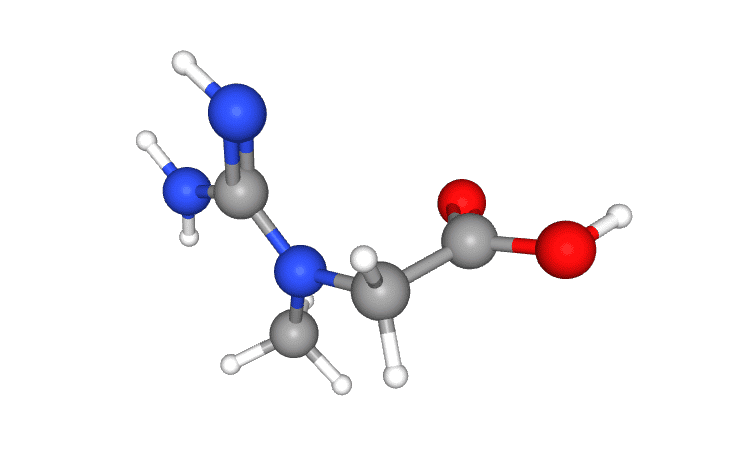
What is creatine?
Creatine is a nutritional supplement that is commonly used by sports people aiming to achieve performance related goals which include increasing fitness, muscle mass, enhancing power and strength and maximising the speed of recovery from repeated sprint exercise.
 Creatine is a naturally occurring substance that is synthesized in the liver and pancreas from essential amino acids. The majority of creatine is stored in muscle tissue but it can also be found in the brain, liver, kidneys, and testes. Creatine is found in foods such as beef, pork and fish.
Creatine is a naturally occurring substance that is synthesized in the liver and pancreas from essential amino acids. The majority of creatine is stored in muscle tissue but it can also be found in the brain, liver, kidneys, and testes. Creatine is found in foods such as beef, pork and fish.
Performance improvement – what does the research say?
Research studies have repeatedly shown that creatine supplementation increases intramuscular creatine stores which leads to improved athletic performance. Creatine has been shown to be effective in not only supporting the development of muscle tissue (resistance based exercise) but also for improving the rate of recovery and improving performance in repeated short bursts of high-intensity activity (field based exercise).
 In both of these scenarios the energy is primarily derived from the adenosine triphosphate – creatine phosphate (ATP-CP) energy system. During high intensity exercise, athletes rapidly deplete phosphocreatine muscle stores and this limits exercise intensity. Creatine supplementation can increase the availability of creatine to the muscle during high intensity exercise, as a result, athletes can recover quicker between repetitions and benefit from completing a greater volume of work in training.
In both of these scenarios the energy is primarily derived from the adenosine triphosphate – creatine phosphate (ATP-CP) energy system. During high intensity exercise, athletes rapidly deplete phosphocreatine muscle stores and this limits exercise intensity. Creatine supplementation can increase the availability of creatine to the muscle during high intensity exercise, as a result, athletes can recover quicker between repetitions and benefit from completing a greater volume of work in training.
 Potential benefits from creatine supplementation?
Potential benefits from creatine supplementation?
- Increased single and repetitive sprint performance
- Increased work performed during sets of maximal effort muscle contractions
- Increased muscle mass & strength adaptations during training
- Enhanced glycogen synthesis
- Increased anaerobic threshold
- Possible enhancement of aerobic capacity via greater delivery of ATP from mitochondria
- Increased work capacity
- Enhanced recovery
- Greater training tolerance
 Taken from: International Society of Sports Nutrition position stand: safety and efficacy of creatine supplementation in exercise, sport, and medicine
Taken from: International Society of Sports Nutrition position stand: safety and efficacy of creatine supplementation in exercise, sport, and medicine
Sports where creatine supplementation could be used?
Creatine supplementation has been found to be particularly beneficial for athletes participating in sports that require a high level of fitness or repeated sprint performance.
Here are examples of sports where a creatine supplement strategy could be implemented as part of a holistic nutrition program.
- Soccer
- Rugby
- Gaelic games (GAA)
- Hockey
- Basketball
- Sprinting
- Athletics
- Olympic weightlifting

Sports that there is limited evidence for creatine supplementation
There is limited evidence that creatine offers benefit to athletes competing in endurance sports such as distance running, swimming or cycling. The extent to which creatine assists with performance is however, often is overstated and it must be understood that there are no magic pills that athletes can use to boost performance. The ones that do exist are called prohibited substances!
 Not all athletes benefit from creatine supplementation
Not all athletes benefit from creatine supplementation
It is important to note that not everyone experiences performance improvements from creatine supplementation, those who do not obtain performance improvements from creatine supplementation are called “non responders”. The notion that creatine supplementation leads to improvements in performance for all athletes is unsubstantiated.
Can female athletes benefit from creatine supplementation?
Yes female athletes can benefit from creatine supplementation just the same as male athletes. Research has shown that female athletes can improve measures of anaerobic performance as well as strength and power. Female athletes may not consider creatine supplementation for reasons related to beliefs around weight gain or changes in body composition. However, there is no evidence to suggest that women have any negative implications from consuming creatine.
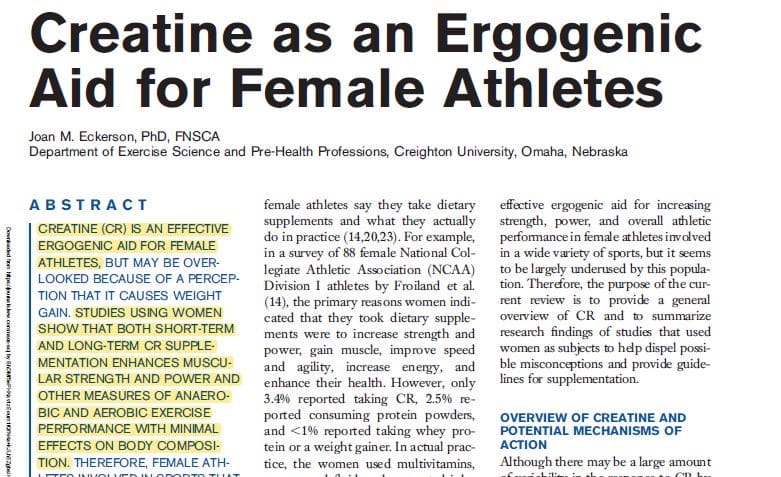
If I am to use creatine, what is the supplement protocol?
 A quick and effective way to increase muscle creatine stores is to consume 5 g of creatine monohydrate (or approximately 0.3 g/kg body weight) four times daily for 5–7 days. When muscle creatine stores are fully saturated, creatine stores can normally be maintained by ingesting 3–5 g/day, although some larger athletes may need to consume slightly more to maintain creatine stores. Another strategy often implemented by athletes is a progressive increase in creatine stores over time. This would involve consuming 3g of creatine daily for 4 weeks, this will gradually increase muscle creatine stores meaning it will take longer for creatine stores to become saturated. This method may result in it taking longer for athletes to see an improvement in performance but the benefits are that you consume a small amount of creatine over a prolonged period.
A quick and effective way to increase muscle creatine stores is to consume 5 g of creatine monohydrate (or approximately 0.3 g/kg body weight) four times daily for 5–7 days. When muscle creatine stores are fully saturated, creatine stores can normally be maintained by ingesting 3–5 g/day, although some larger athletes may need to consume slightly more to maintain creatine stores. Another strategy often implemented by athletes is a progressive increase in creatine stores over time. This would involve consuming 3g of creatine daily for 4 weeks, this will gradually increase muscle creatine stores meaning it will take longer for creatine stores to become saturated. This method may result in it taking longer for athletes to see an improvement in performance but the benefits are that you consume a small amount of creatine over a prolonged period.
What type of creatine should I use?
Creatine monohydrate is the cheapest and most accessible form of creatine. It is also the type of creatine with the most substantial amount of research to support its benefits.
Taking creatine with a carbohydrate food source?

It is suggested that consuming creatine with a carbohydrate or carbohydrate and protein food source can increase muscular uptake of creatine. In simple terms this means having creatine with fruit juice, in yogurt or in a smoothie. This approach has not been conclusively proven to improve creatine uptake but it is a practical approach to consuming creatine as part of a fuel up or recovery strategy for exercise performance.
| Below is an outline of the main points taken from the international Society of Sports Nutrition about creatine supplementation. Journal of the International Society of Sports Nutrition 2007, 4:6 doi:10.1186/1550-2783-4 |
| 1. Creatine monohydrate is the most effective ergogenic nutritional supplement currently available to athletes in terms of increasing high-intensity exercise capacity and lean body mass during training.
2. Creatine monohydrate supplementation is not only safe, but possibly beneficial in regard to preventing injury and/or management of select medical conditions when taken within recommended guidelines. 3. There is no scientific evidence that the short- or long term use of creatine monohydrate has any detrimental effects on otherwise healthy individuals. 4. If proper precautions and supervision are provided, supplementation in young athletes is acceptable and may provide a nutritional alternative to potentially dangerous anabolic drugs. 5. Creatine products are readily available as a dietary supplement and are regulated by the U.S. Food and Drug Administration (FDA). 6. Creatine monohydrate has been reported to have a number of potentially beneficial uses in several clinical populations, and further research is warranted in these areas. |
Are there side effects of creatine supplementation?
Creatine is one of the most extensively researched and widely used supplements available to athletes. Weight gain due to water retention is the most commonly reported side effect of creatine supplementation. Anecdotally, the most commonly reported adverse effects of its use are cramping and nausea. Athletes have noted that if creatine is consumed in large amounts without sufficient water, stomach cramping and diarrhea can occur. For this reason it is vital to follow the recommended intake guidelines and consume sufficient water.
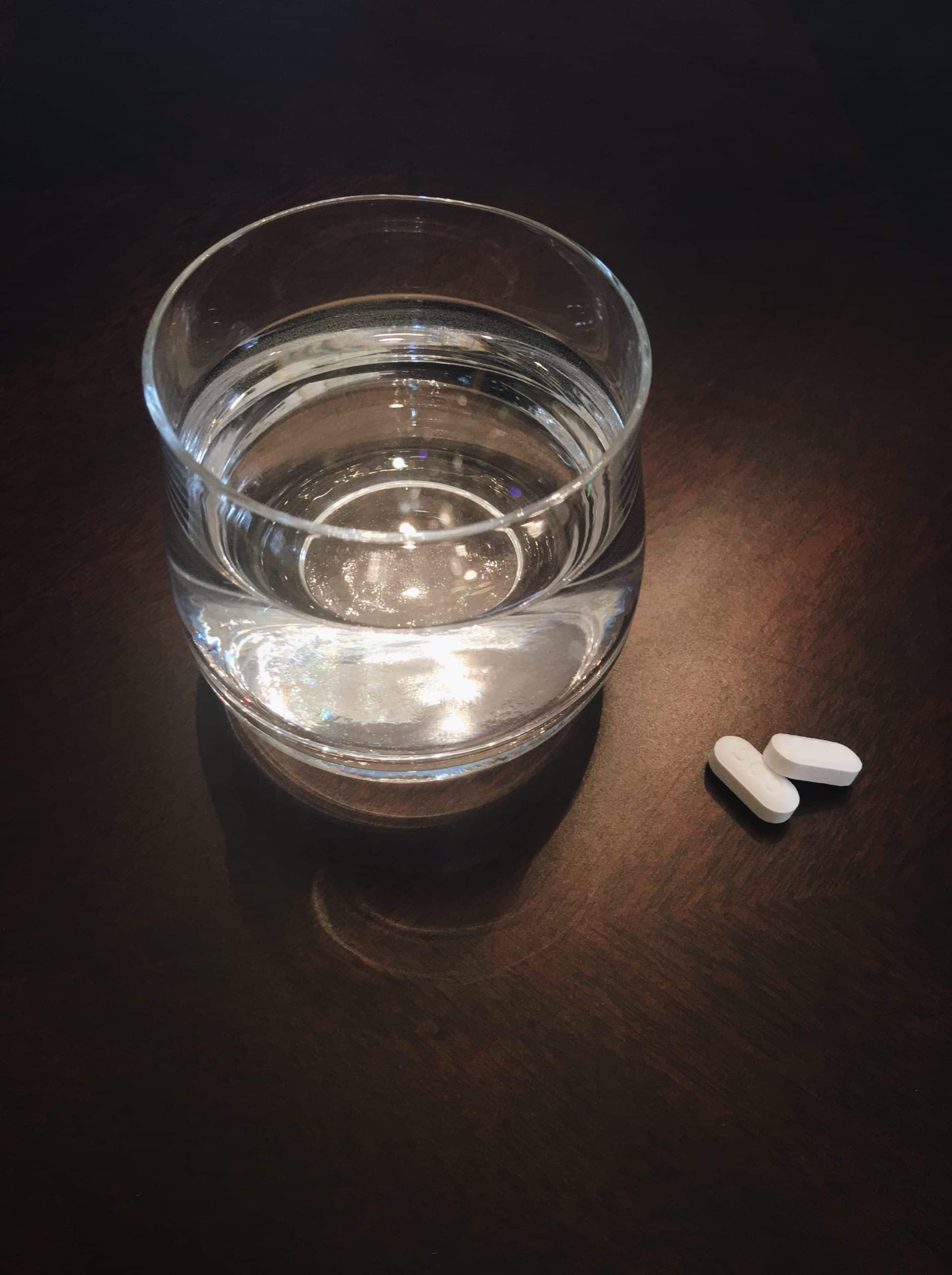 More serious health risks such as liver and kidney damage have been reported in the popular media. However, creatine supplementation is considered safe and studies to date have not shown any adverse side effects in healthy adults. Interestingly, an article from the American College of Sports Medicine reported that “there is no definitive evidence that creatine supplementation causes gastrointestinal, renal, and/or muscle cramping complications”. In addition, the International Society of Sports Nutrition position stand states that “while athletes who are taking creatine may experience the symptoms outlined above, the scientific literature suggests that these athletes have no greater, and a possibly lower, risk of these symptoms than those not supplementing with creatine monohydrate”.
More serious health risks such as liver and kidney damage have been reported in the popular media. However, creatine supplementation is considered safe and studies to date have not shown any adverse side effects in healthy adults. Interestingly, an article from the American College of Sports Medicine reported that “there is no definitive evidence that creatine supplementation causes gastrointestinal, renal, and/or muscle cramping complications”. In addition, the International Society of Sports Nutrition position stand states that “while athletes who are taking creatine may experience the symptoms outlined above, the scientific literature suggests that these athletes have no greater, and a possibly lower, risk of these symptoms than those not supplementing with creatine monohydrate”.
Creatine has been used effectively for decades by athletes aiming to achieve various performance targets. To date, apart from weight gain (from water retention), research studies have shown no adverse side effects of creatine supplementation. Serious side effects of creatine supplementation such as irregular heart beat, heart palpitations and kidney damage that have been linked with creatine supplementation have not been proven and remain highly speculative.

Should I take creatine to improve performance?
Does creatine have the potential to improve athletic performance? Yes. Does that mean that athletes should automatically take it? Absolutely not. If an athlete has not invested the time, thought, planning and execution of a sound nutrition strategy for training and performance then creatine is not going to simply overcome those shortcomings.
Creatine intake should only considered under the following conditions:
- The athlete is undertaking the correct training program
- The athlete is educated about the product
- The athlete follows the correct intake guidelines
- All other nutritional requirements and protocols are being met
- You are willing to be consistent and compliant with the supplement protocol
- Ideally, the athlete is under the guidance of a qualified nutritionist, dietitian, sports scientist or trainer
Concluding remarks
From my experience as a performance nutritionist, athletes, even at elite level are often not achieving all their essential nutrition requirements and can gain performance and health benefits by having a better overall nutrition understanding and ensuring they meet their daily requirement for vital nutrients through optimum food choices. I do believe that when writing about the use of any supplement, it is critical to be objective and factual about relevant research on the topic. Coaches and those responsible for making supplement decisions for athletes must do so only after assessing the overall benefit and ensuring the correct framework and performance strategy is in place.
For simple creatine recipes try the following:
 References
References
Cooper, R., Naclerio, F., Allgrove, J. and Jimenez, A., 2012. Creatine supplementation with specific view to exercise/sports performance: an update. Journal of the International Society of Sports Nutrition, 9(1), p.33.
Chilibeck, P.D., Kaviani, M., Candow, D.G. and Zello, G.A., 2017. Effect of creatine supplementation during resistance training on lean tissue mass and muscular strength in older adults: a meta-analysis. Open access journal of sports medicine, 8, p.213.
Dempsey, R.L., Mazzone, M.F. and Meurer, L.N., 2002. Does oral creatine supplementation improve strength? A meta-analysis. Journal of Family Practice, 51(11), pp.945-951.
Eckerson, J.M., 2016. Creatine as an ergogenic aid for female athletes. Strength & Conditioning Journal, 38(2), pp.14-23.
Galvan, E., Walker, D.K., Simbo, S.Y., Dalton, R., Levers, K., O’Connor, A., Goodenough, C., Barringer, N.D., Greenwood, M., Rasmussen, C. and Smith, S.B., 2016. Acute and chronic safety and efficacy of dose dependent creatine nitrate supplementation and exercise performance. Journal of the International Society of Sports Nutrition, 13(1), p.12.
Jagim, A.R., Stecker, R.A., Harty, P.S., Erickson, J.L. and Kerksick, C.M., 2018. Safety of creatine supplementation in active adolescents and youth: A brief review. Frontiers in nutrition, 5, p.115.
Kreider, R.B., Kalman, D.S., Antonio, J., Ziegenfuss, T.N., Wildman, R., Collins, R., Candow, D.G., Kleiner, S.M., Almada, A.L. and Lopez, H.L., 2017. International Society of Sports Nutrition position stand: safety and efficacy of creatine supplementation in exercise, sport, and medicine. Journal of the International Society of Sports Nutrition, 14(1), p.18.

